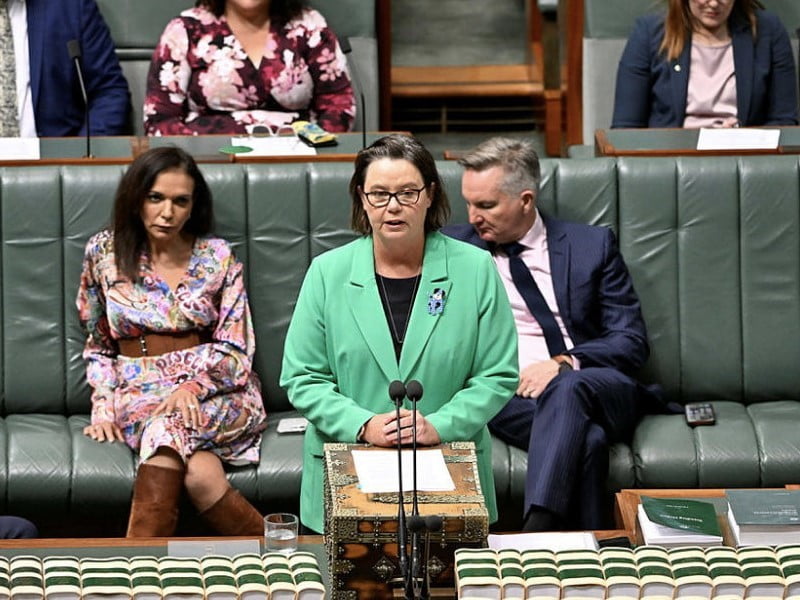Australia is deepening collaborations with “likeminded partners” on critical minerals to lessen the concentration of the supply chain in China, according to Resources minister Madeleine King.
Speaking at the Australian Strategic Policy Institute’s Darwin Dialogue, Ms King highlighted that China “enjoys an unchallenged position” in much of the critical minerals processing supply chain.
Beyond the opening of new mines, Australia’s “vast reserves of critical minerals and rare earth elements” provide an opportunity for downstream processing and supply chains and put Australia “in an excellent position to play a globally significant role”, she said.

Having signed critical minerals agreements with Germany and the UK in recent weeks, Ms King said that Australia must work with “likeminded partners to build new, diverse, resilient and sustainable supply chains as part of a global hedge against concentration”.
“Diversity, as opposed to concentration, is an intrinsic good and in the interest of all nations. In this regard, I want to particularly acknowledge and welcome the leadership and foresight of the US and Japan,” she said.
Ms King said that “market concentration leads to fragility, volatility, and unreliability of key materials, like critical minerals and rare earths”, demonstrated by COVID-driven supply chain disruptions and energy price spikes.
In response to such concentration, Treasurer Jim Chalmers last November flagged greater scrutiny of foreign investments in critical minerals projects would be put under given its strategic importance,
In February, the Treasurer rejected a proposal by Yuxiao Fund, the Singapore-registered investment vehicle of a Chinese national to increase its stake in Australian rare-earths miner Northern Minerals from around 10 per cent to just under 20 per cent.
A critical minerals industry report released at the end of December 2022 called on the government to streamline the FIRB to reduce red-tape. It also called on the government to strengthen market access to allied countries and to form new alliances given the “times of continued geo-political uncertainty”.
Ms King highlighted that “Australia and Japan’s economies are highly complementary” as both raw and processed critical minerals exports are “key inputs” to Japan’s advanced manufacturing industry. A Japan-Australia Critical Minerals Partnership was signed in October 2022.
She also acknowledged the United States’ Inflation Reduction Act for bringing “an unprecedented level of horsepower to the twin challenges of tackling climate change and diversifying supply chains”.
Last week, Ms King announced that a joint declaration had been signed with the German federal government to undertake a critical minerals value chain study to identify opportunities for collaboration. A statement of intent was also signed with the United Kingdom to deeper collaboration.
In March, Future Batteries Cooperative Research Centre chief executive Shannon O’Rourke urged the Australian government to create “true alliances” with countries with shared interests.
In light of the European Union’s Critical Raw Minerals Act, which includes targets to meet 10 per cent of its critical minerals needs and 40 per cent of its processing needs domestically, Mr Rourke noted that “if government try and do it all inside their borders, then maybe they’re not great partners, maybe we should select countries that want to work with us”.
The federal government is planning to release an updated Critical Minerals Strategy and National Battery Strategy later this year.
Do you know more? Contact James Riley via Email.

